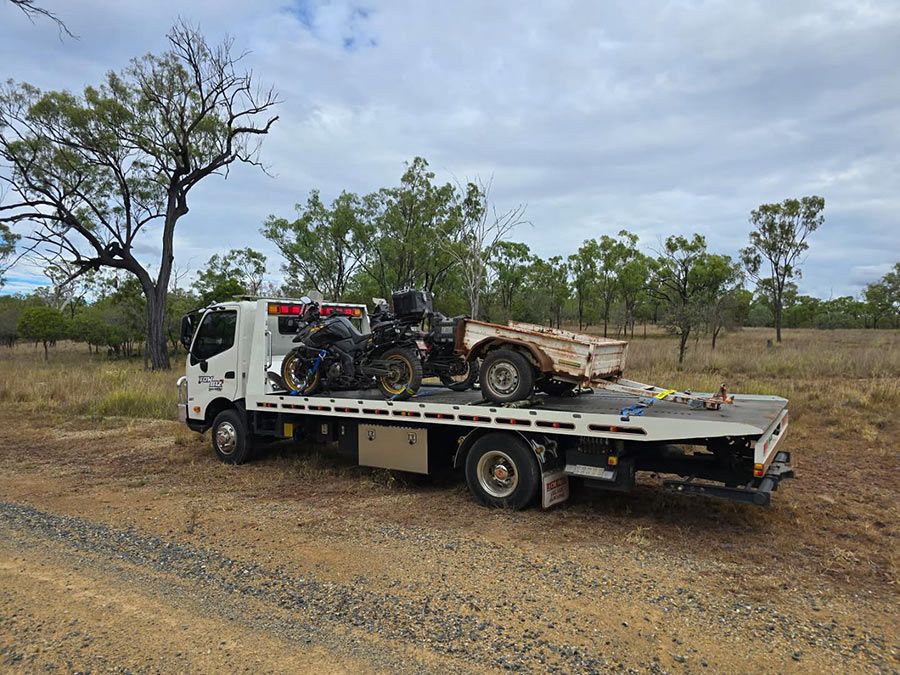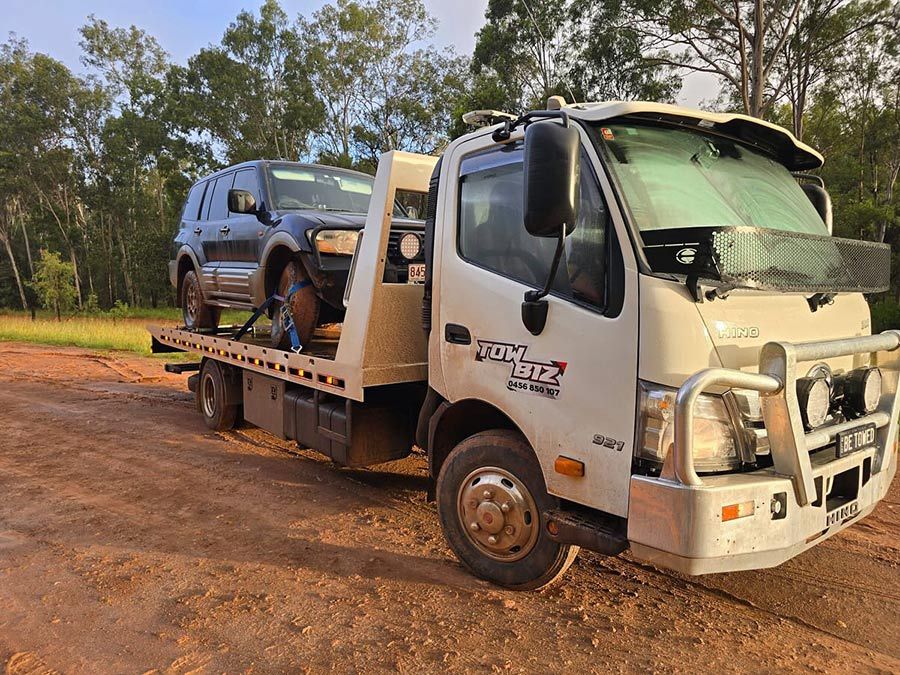Vehicle Transport in Rockhampton
- Free scrap car removal available
- 24/7 towing & roadside support
- Fully licensed & insured team
Get a Quote
Email not monitored 24/7
Thank you for contacting Tow Biz.
We will get back to you as soon as possible.
Oops, there was an error sending your message.
Please try again later.
Rockhampton Vehicle Transport
Moving vehicles isn’t just about getting from A to B—it’s about making sure they arrive safely, securely, and without a hitch. At Tow Biz, based right here in Rockhampton, we understand that every transport job is different. Whether you're relocating, selling a vehicle, or moving something a bit out of the ordinary, like a boat or a bike, we take the stress off your plate.
Our team uses the right equipment, loads with care, and keeps communication clear so you know your vehicle is in safe hands from start to finish. No last-minute surprises, just straightforward, reliable service every time.
If you’re after peace of mind and professional service, give us a call on 0456 850 107. We’ll get your transport sorted quickly and carefully.
Vehicle Transport that Fits Your Needs
We transport more than just cars. From motorcycles and trailers to light commercial vehicles and classic cars, we’ve got the gear and experience to move them all. Whether it’s across town or further out in the region, we take the time to plan each job properly, strapping everything down safely and protecting it for the road ahead.
We’ve helped car owners, collectors, transport companies, and even farmers move vehicles of all shapes and sizes. We know Rockhampton’s roads, and we travel across surrounding areas like Biloela, Gracemere, Yeppoon, and Emu Park to help our customers wherever they are.
Not sure if your vehicle fits the bill? Give us a call or send through a photo—we’ll let you know how we can help and get you booked in fast.
Is it safe to tow a car with a rope or strap?
Towing a car with a rope or strap is only recommended under very limited and legal circumstances—and even then, it must be done with extreme caution. In most Australian states and territories, towing with a rope or strap on public roads is either restricted or prohibited unless it’s a last resort in an emergency situation. Even then, specific requirements must be met, such as a visible “On Tow” sign, limited speed, proper lighting, and safe driving practices. Ropes or straps can snap under tension, especially at higher speeds or if the towing vehicle brakes suddenly. For safety, legality, and vehicle protection, professional towing services using proper equipment like tow trucks or tilt trays are the safest and most reliable option.
Can I get my car towed without being present?
Yes, it is possible to have your car towed without being present, as long as the towing company has permission and access to the vehicle. Many towing providers allow customers to book a pickup over the phone or online, especially in cases where the vehicle has broken down or been left in a public or accessible location. You may need to provide written or digital authorisation, vehicle keys, and specific location details. Some companies may also require photo ID, proof of ownership, or information to confirm the request is legitimate. If the vehicle is locked or inside a secured area, arrangements will need to be made in advance to ensure access is possible.
What’s the difference between tilt tray towing and traditional towing?
Tilt tray towing involves a flatbed truck where the tray tilts to ground level, allowing the vehicle to be loaded and secured with minimal risk of damage. This method is ideal for transporting lowered vehicles, motorcycles, luxury cars, and vehicles that are no longer drivable due to damage. Traditional towing often uses a tow bar or hook and lifts either the front or rear wheels of the vehicle off the ground. While it’s suitable for many short-distance tows, it can cause wear and tear if not done correctly, especially for vehicles with automatic transmissions or all-wheel drive. Tilt tray towing is generally considered safer and more versatile for a wide range of transport needs.





